Divine Tips About How To Write Confessional Poetry

Confessional poetry, said rosenthal, is poetry that goes beyond customary bounds of reticence or personal embarrassment.
How to write confessional poetry. Effects of confessional poetry. Different styles/genres of confessional poetry. Confessional poetry is all about private experiences.
How does confessional poetry differ from other schools of poetry? This type of poetry also “exposes and intimately handles private, human pains.”1 to a certain degree, and as a category of modern poetry, confessional poetry. According to the academy of american poets, confessional poetry is “poetry of the personal or ‘i’.” it means that all the poems of this school are written.
Many people consider memoir the main form. As the name would imply, confessional. For the most part, confessional writing can take many forms — journal writing, letters, essays, books, or poems.
It’s about letting go, tapping into images and sensations, and allowing your emotions to take over. It is a branch of. Confessional poetry or confessionalism is a style of poetry that emerged in the united states during the late 1950s and early 1960s.
Sylvia plath, anne sexton | chapter 27. A precursor to plath and sexton, w.d. The type of poetry most often associated with a poet’s personal emotional journey is confessional poetry.
Photo by alex holyoake on unsplash. And lowell wasn't the only poet to do it. One way to do so is to write confessional poetry.
The original confessional poet tells all. Snodgrass broke the rules of what you could (and could not) say in a poem. One of the key effects of confessional poetry is the ability to create a strong emotional impact.
Writing techniques to improve confessional poetry. What it is, and why it is important? Among the key characteristics of confessional poetry are:
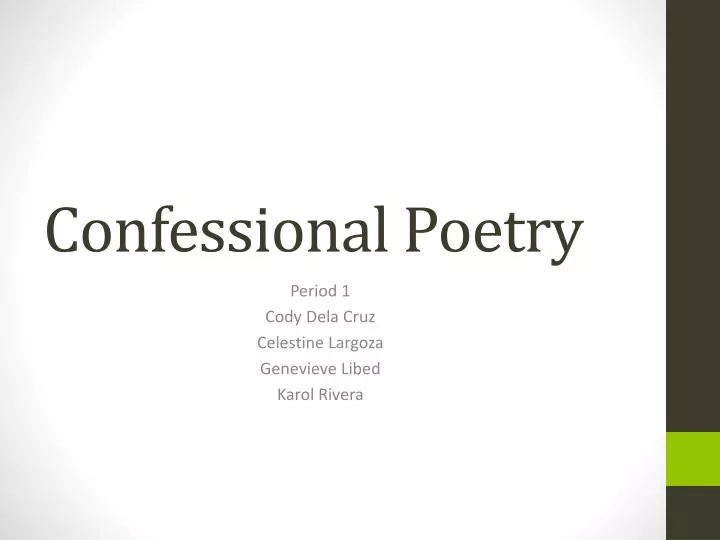

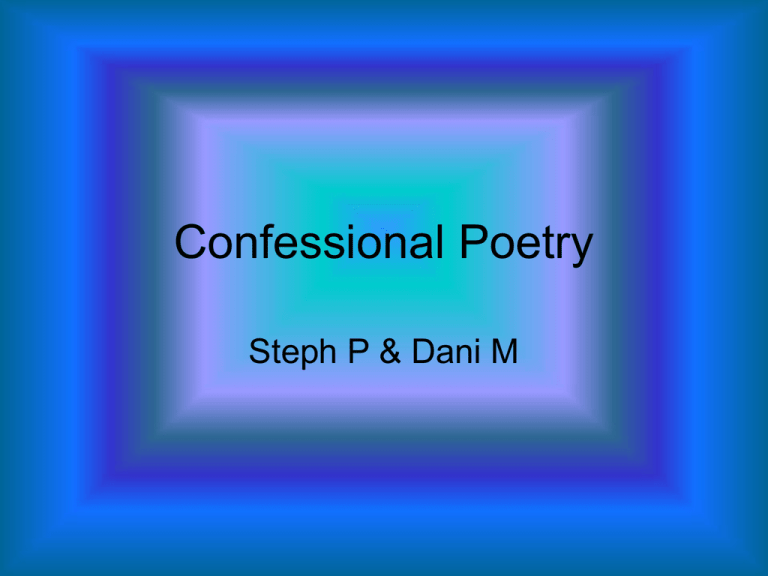


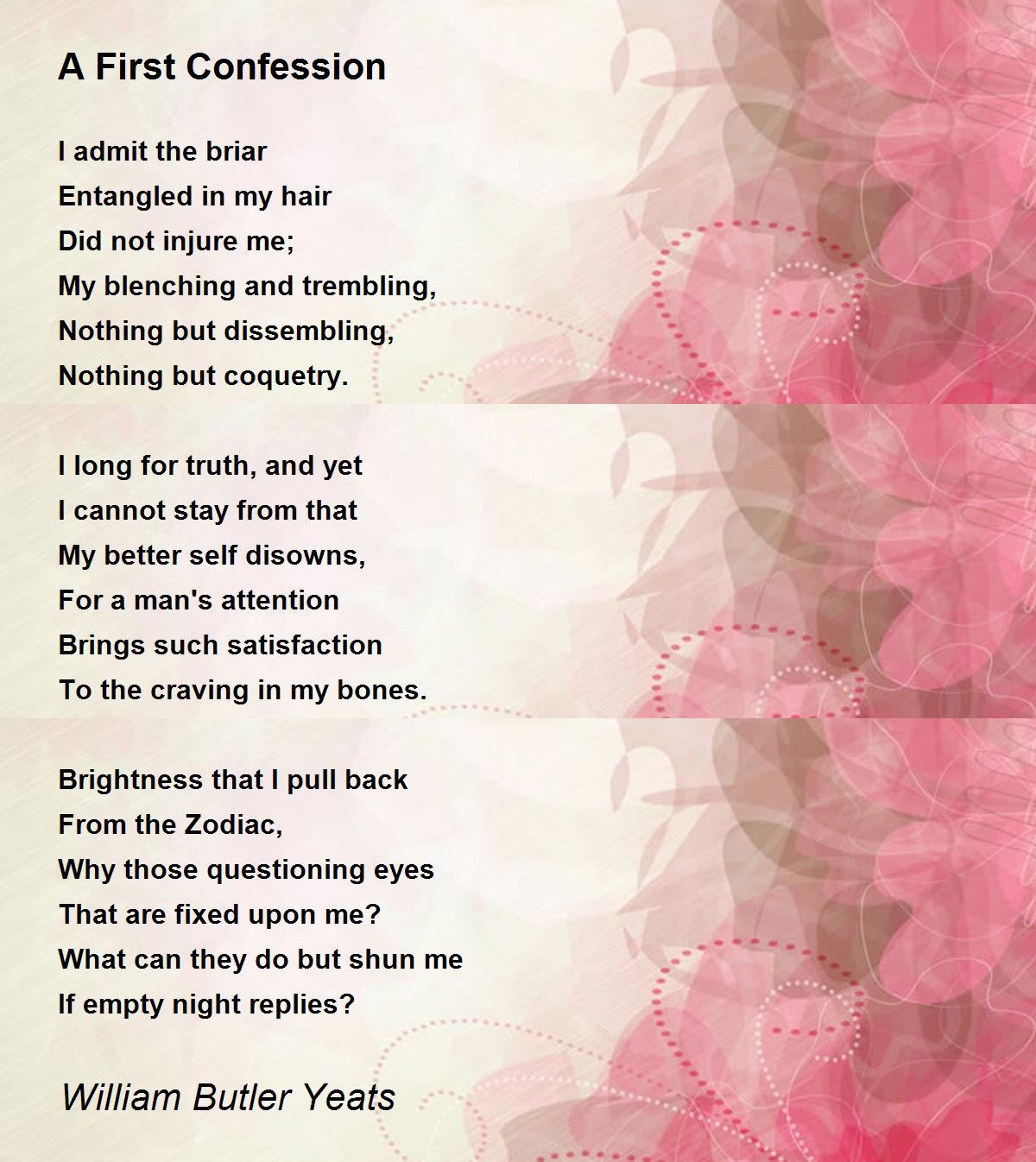



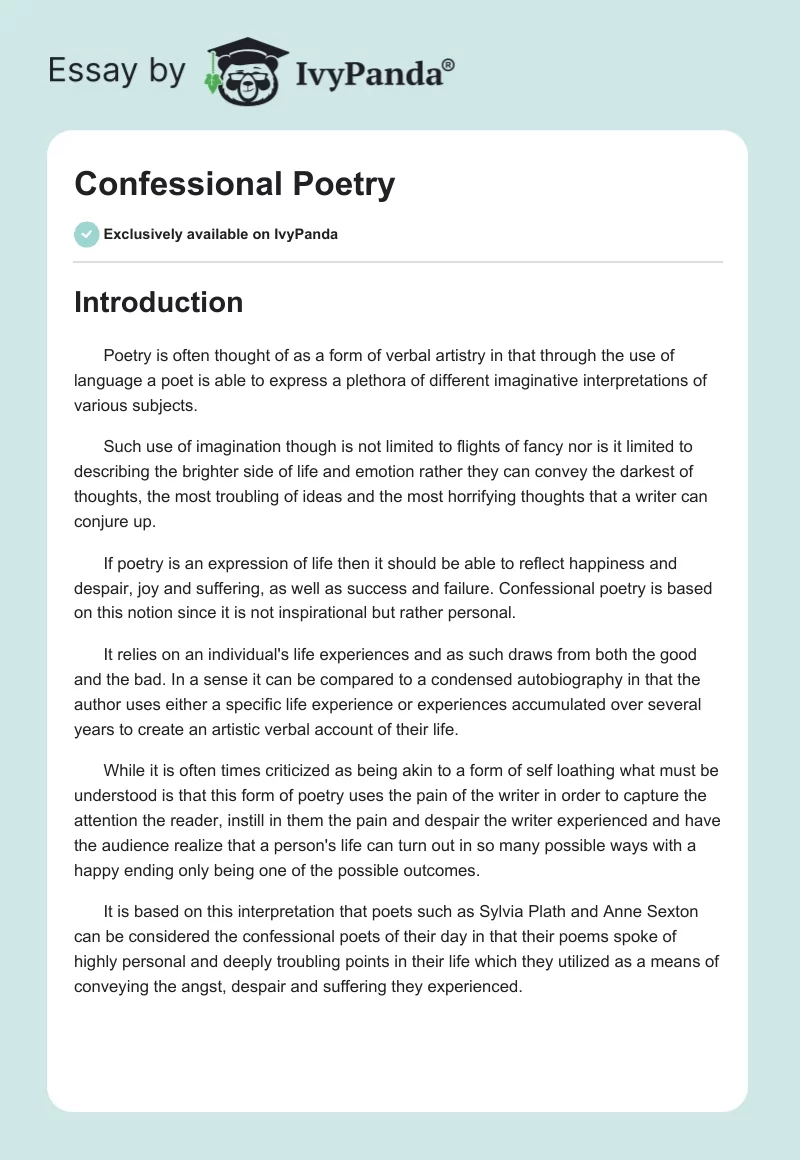
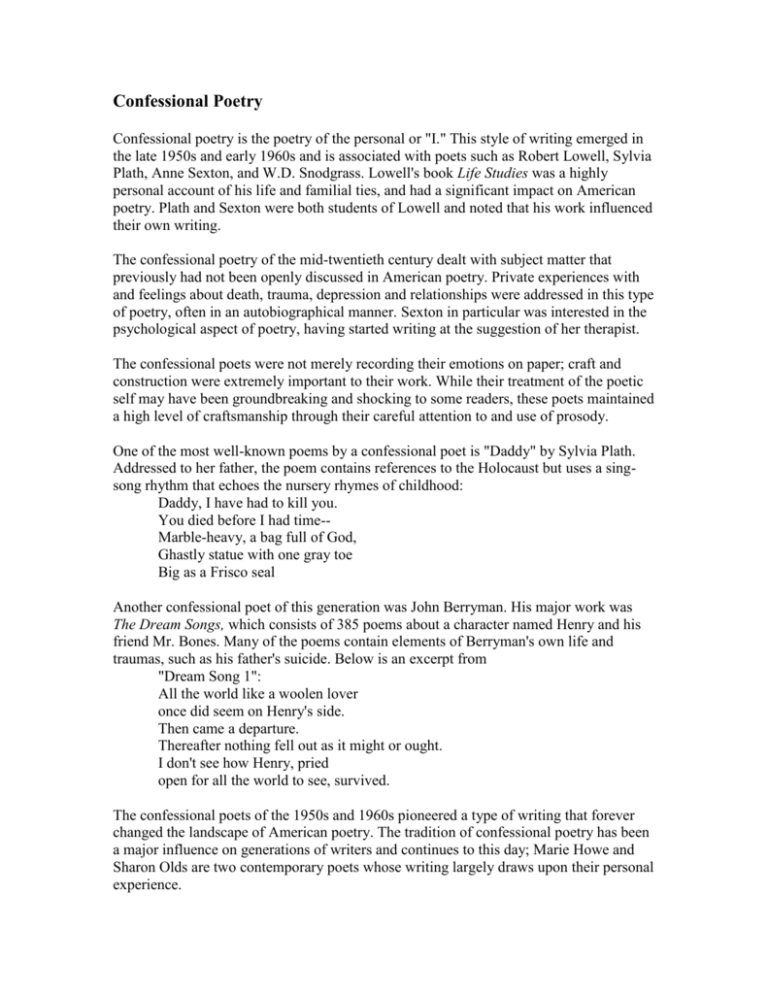
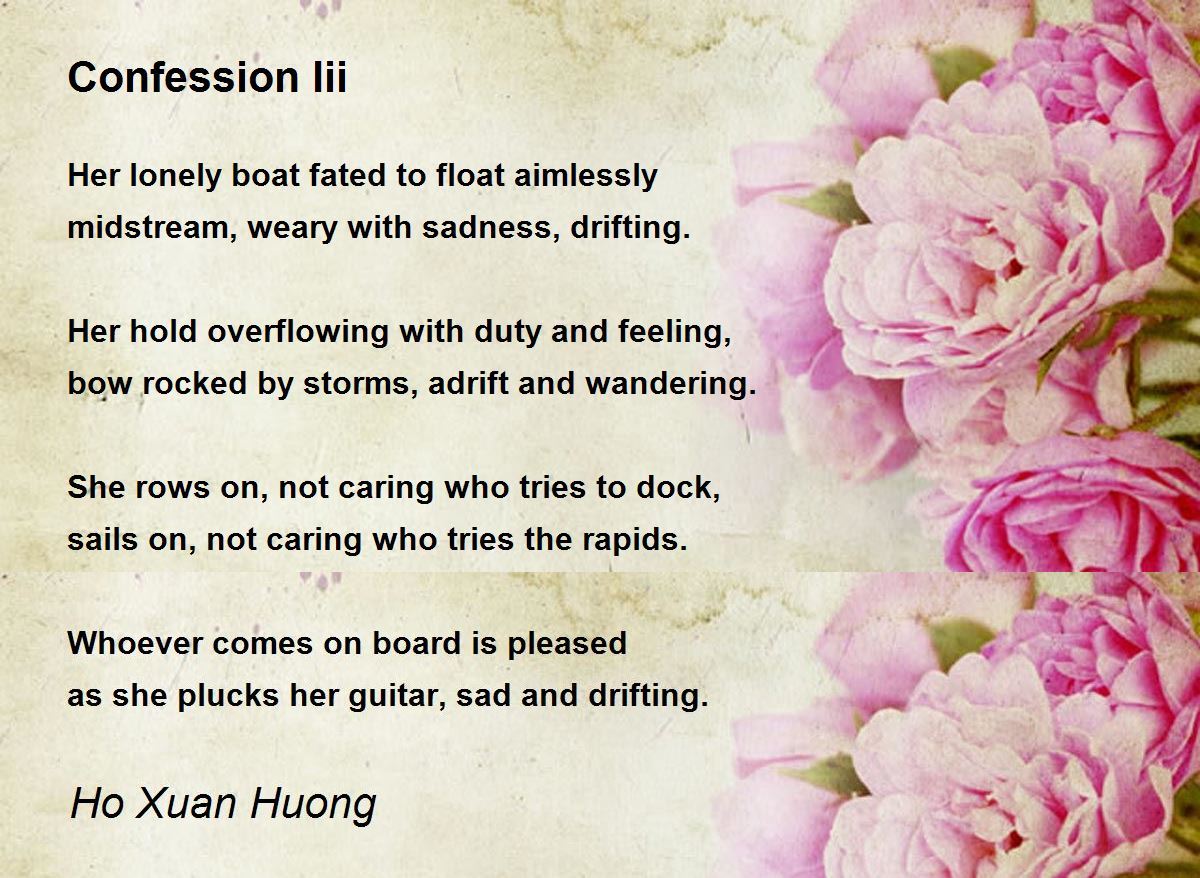

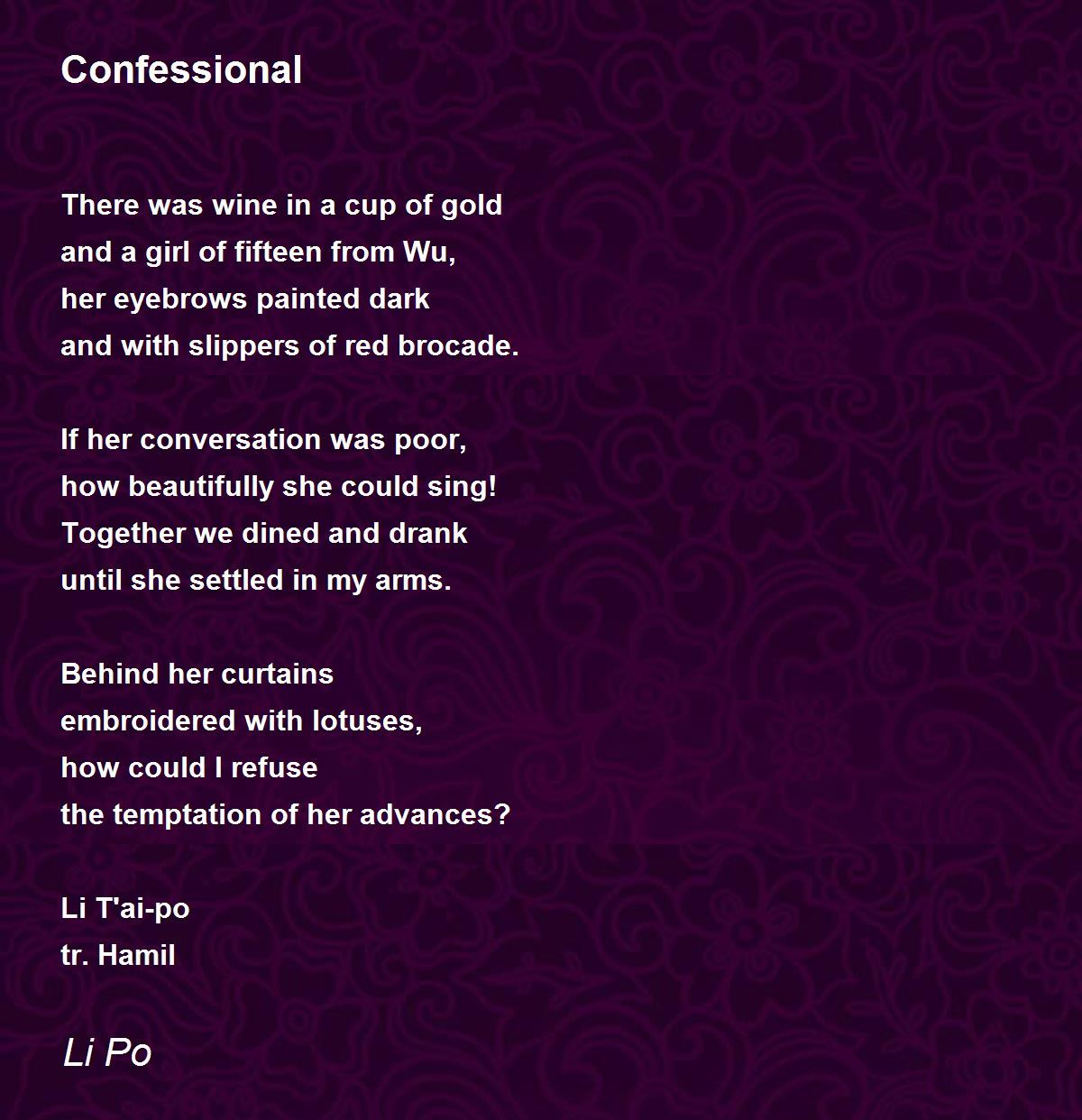
.PNG)



